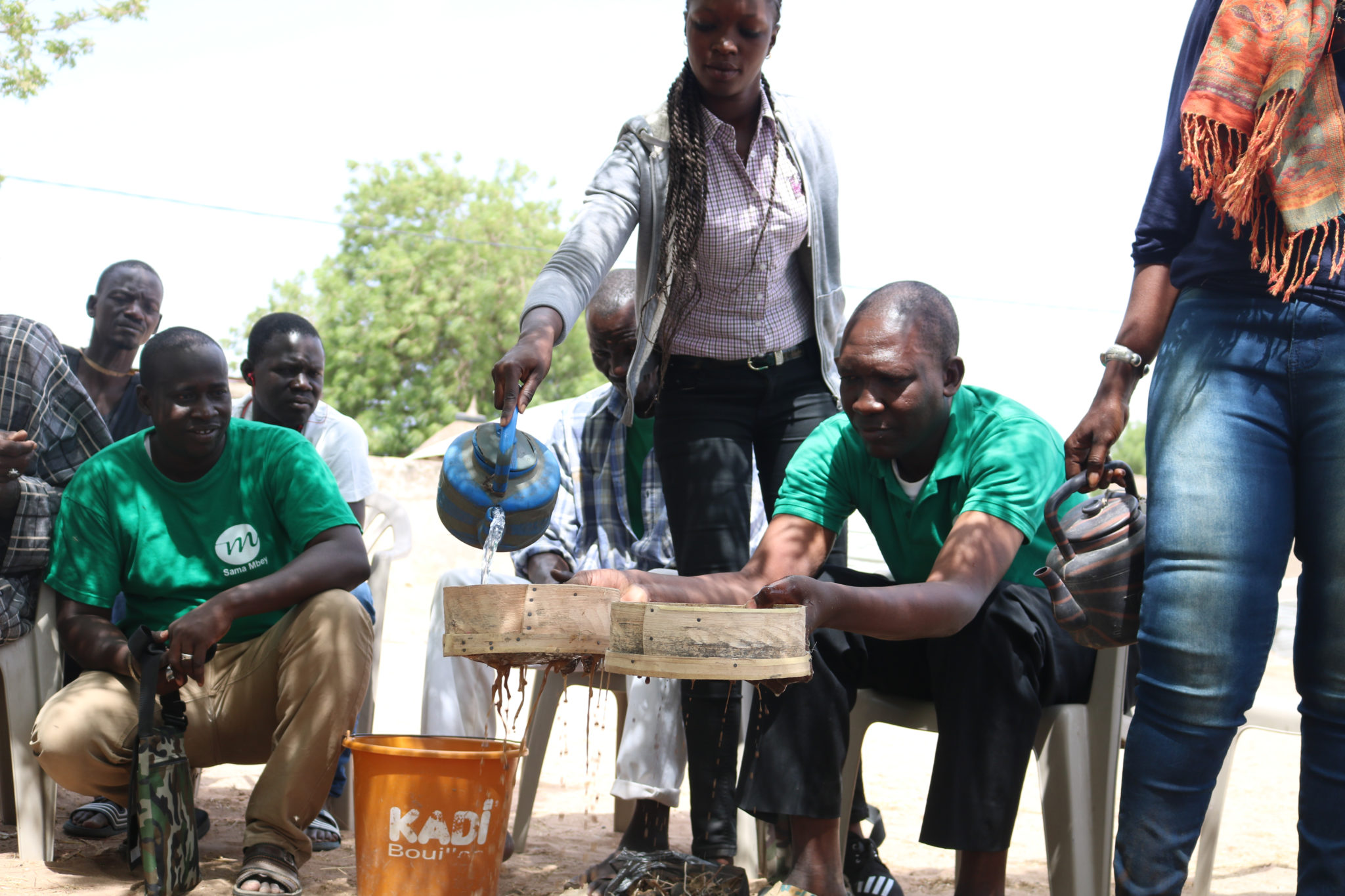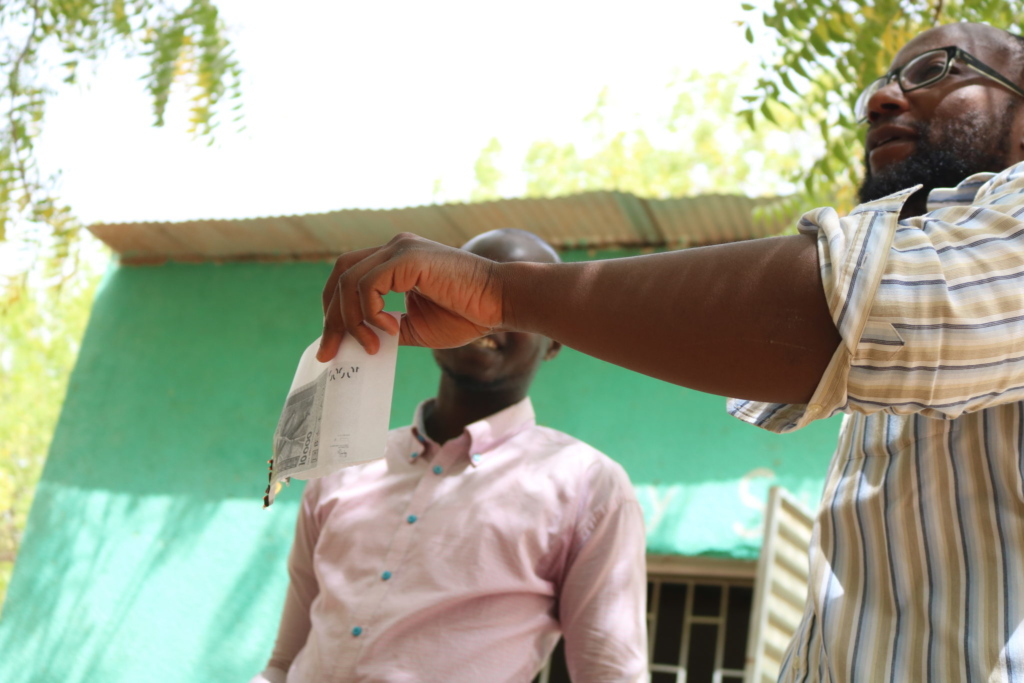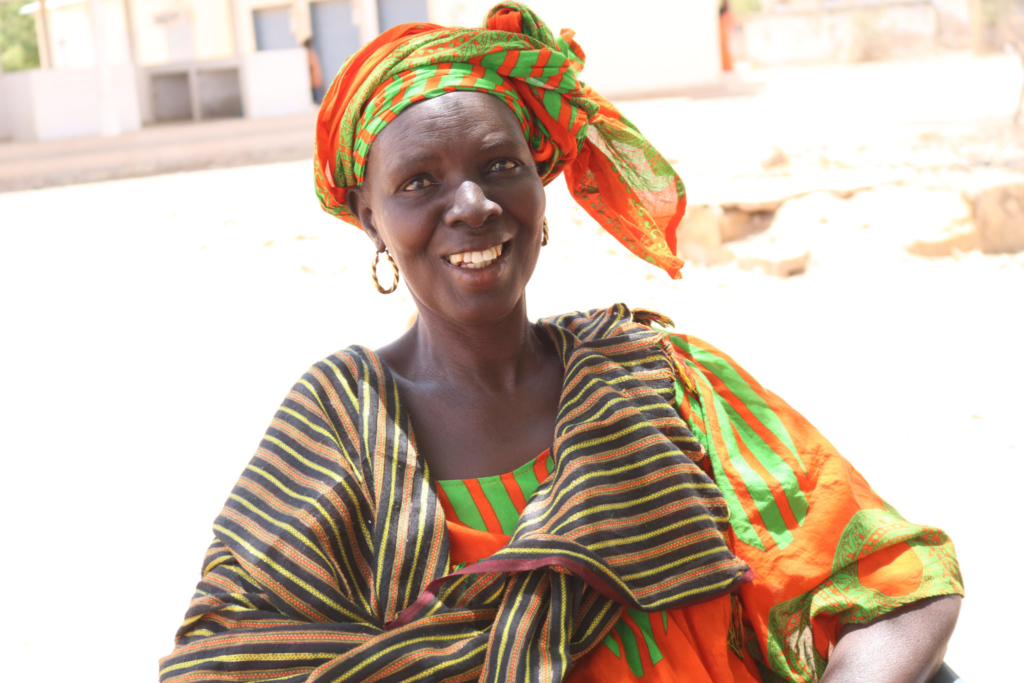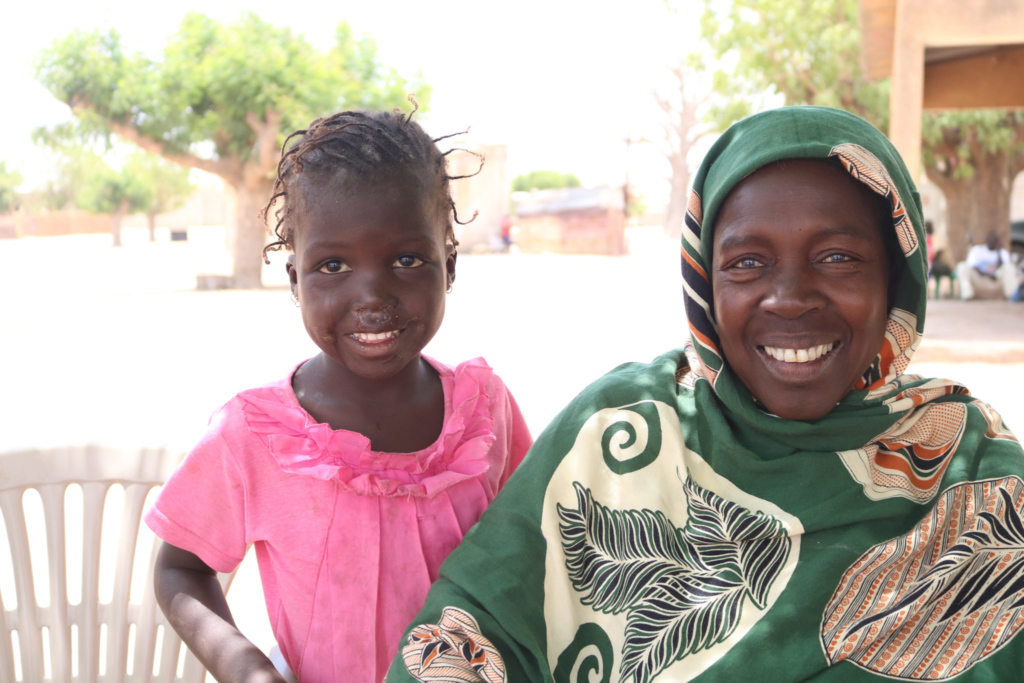Re-thinking Agricultural Education: Engaging Farmers with Practical Trainings

In our mission to support farmers to have larger harvests, myAgro not only offers high-quality seeds, fertilizer, and tools, we also train farmers on how to use those products. Knowing our farmers allows us to design all aspects of our program, including our trainings, in a way that best responds to their needs.
In the district of Gossas, Senegal, a group of 25 farmers sit in a circle beneath a tree and watch in anticipation as Mahmadou, their myAgro field agent, holds up two wooden strainers—one filled with soil, the other a mixture of soil and manure.
“Now watch as we pour water onto the soils,” Mahmadou says, as team members pour water into both strainers at the same time.
With their eyes fixated on the strainers, farmers carefully observe as the water flows right out the bottom of the strainer without manure, while only a couple drops fall from the other strainer. The farmers begin to chatter in hushed voices.
“As you can see, the strainer with manure holds water,” Mahmadou explains, “That’s the difference organic fertilizer makes. It helps soil retain water so that plants have enough water. It also prevents plants from falling over in the wind. This is why using organic fertilizer will help you to have a good harvest.”
Training farmers in a way that suits their needs ensures that they apply the best practices to their fields, in addition to the best inputs. This combination is what leads to our farmers increasing their harvests by 50%.
“When designing trainings, we keep in mind that most farmers have never used new techniques, such as micro-dosing,” explains Dido, Senior Agricultural Associate in Senegal. “That’s why we make sure to include lots of games and metaphors in the trainings to demonstrate to farmers the importance of using our techniques. For example, to emphasize the importance of using insecticide against Fall Armyworm, we burn a mock 10,000 CFA bill and say ‘If you don’t use insecticide, it’s like you’re burning your money.’”

“If you don’t use insecticide, it’s like you’re burning your money,” says Dido, while burning a mock bill of 10,000CFA (~18 USD).
This year, myAgro bundled insecticide into its maize and sorghum packages in order to protect farmers’ crops from a pest recently found in West Africa, the Fall Armyworm (FAW). This year was the first time that myAgro offered insecticide to farmers since it is one of the few scientifically proven ways to fight FAW. Many farmers are not aware of the damage FAW can bring, but they appreciate getting more product that will help their fields. When designing trainings, we make sure to emphasize the danger of FAW and the importance of following our methods to protect their fields.
When coming up with recommendations for farmers, myAgro keeps in mind that they have been using farming techniques passed down from generation to generation, which could lead to reluctance or skepticism about following our methods.
“Farmers were at first skeptical that the insecticide for FAW might not work because some of them tried insecticides last year with little success,” explains Jorre, Regional Agriculture Manager. “After attending our trainings, however, farmers understand that the products work if you use the correct dosage and timing (detect early, react quickly, act correctly). Farmers respond well to the in-depth training we give on how to scout their fields, apply the insecticide, and protect themselves.”
myAgro farmer Aminta was impressed by the trainings and looks forward to applying the new techniques. “We know that as time goes on, agriculture improves,” says Aminta, “I’ve never seen these planting techniques before. In the past, we used to just throw fertilizer down, and sometimes we’d have bad harvests. But after this training, I have trust that following this method will increase my yields.”

myAgro farmer Aminta
Absa Mbaye is another farmer who anticipates good results thanks to the trainings. “These trainings have really taught us how to have a good harvest,” she says, “I know that if we follow these recommendations, we’ll get the results we need, which will help us meet our needs and face life’s difficulties.”

Absa and her daughter after attending the agricultural training